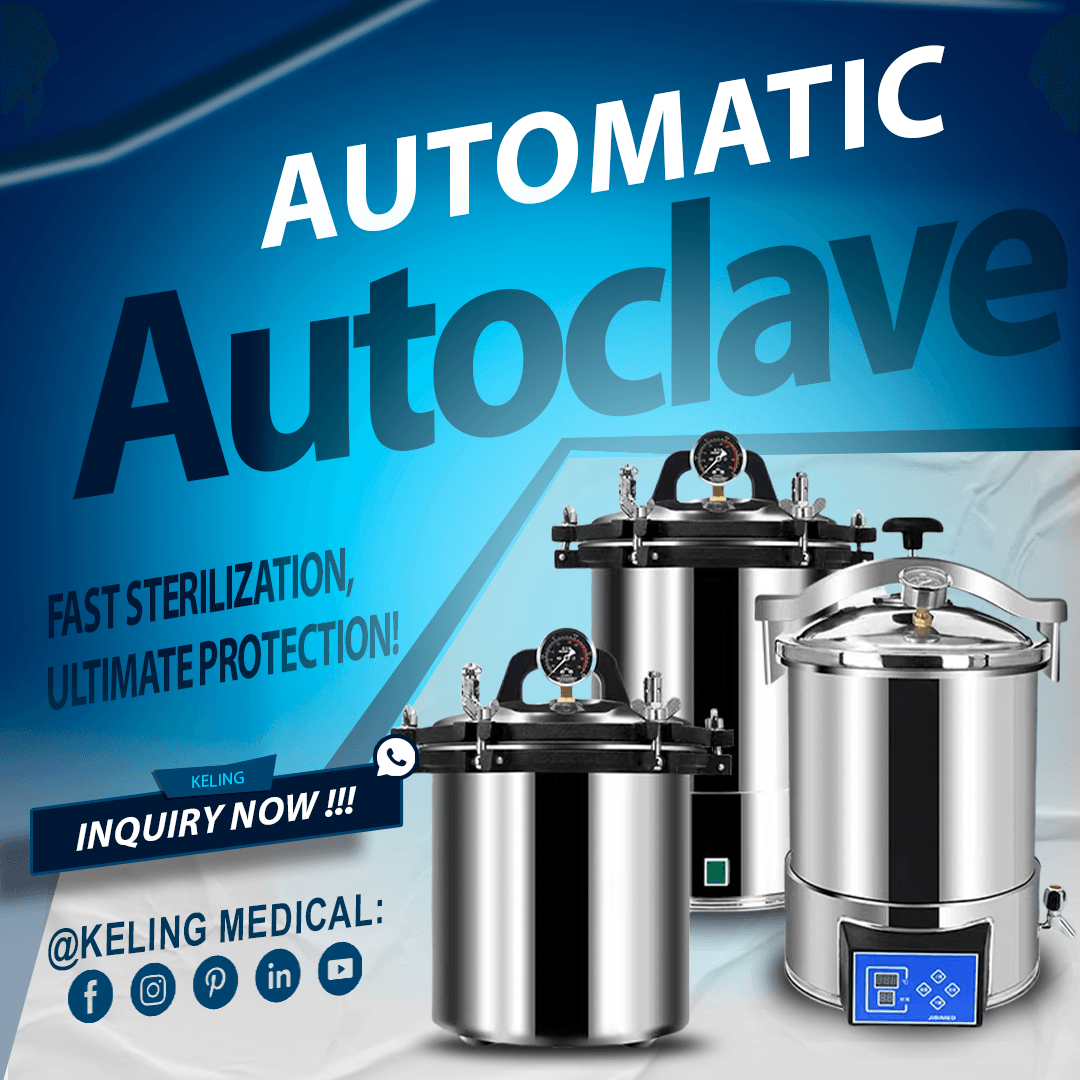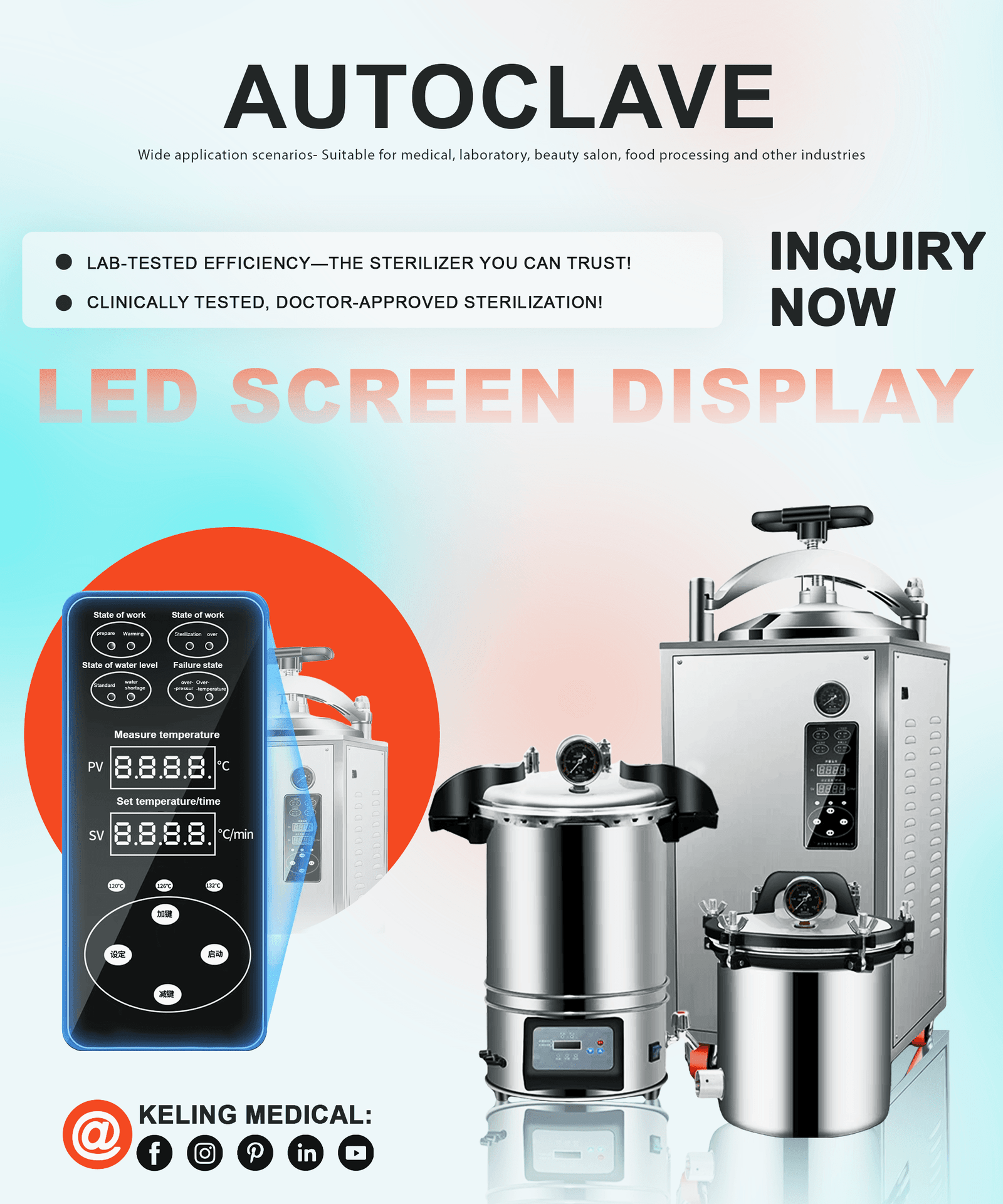
Agricultural tools and equipment must be sterilized to avoid contamination problems and protect crop quality. Autoclaves deliver effective sterilization through high-pressure steam to remove contaminants from tools and equipment to guarantee their safety for use.
This article examines why sterilization is vital for agriculture while discussing the functions of autoclaves and how they improve upon conventional sterilization techniques.
The exposure of agricultural tools and equipment to soil and plant matter makes them vulnerable to contamination. Without proper sterilization:
Harmful microorganisms including bacteria, fungi, and viruses move from one plant to another through contact.
Farm tools that carry contamination can spread bacterial wilt and other fungal and viral infections to previously unaffected plants.
Through sterilization processes crops remain disease-free and can thrive healthily.
The use of contaminated agricultural equipment results in poor crop quality due to disease transmission.
Introducing pests or pathogens that weaken plants.
Reducing yields due to disease-related damage.
Affecting the appearance and marketability of crops.
Commercial farming operations require consistent crop quality which sterilized tools and equipment help maintain.
The agricultural industry recognizes autoclaves as the leading choice for sterilizing tools and equipment. The sterilization process uses high-pressure steam to kill microorganisms which results in complete sterilization.
Different agricultural tools and equipment that can undergo sterilization processes include hand tools, containers, irrigation equipment, and harvesting tools.
A wide variety of agricultural tools and equipment can be sterilized using autoclaves.
Hand Tools: Pruners, shears, shovels, and trowels.
Containers: Seed trays, pots, and storage bins.
Irrigation systems utilize pipes and nozzles as their primary equipment components.
Harvesting tools include knives and scissors along with other similar cutting implements utilized during harvest time.
Autoclaves remove pathogens from items through sterilization so they become safe for use.
The autoclaving process involves several steps:
Sagatavošana: All equipment and tools receive cleaning to eliminate any visible dirt and debris before processing.
Iekraušana: Priekšmeti tiek ievietoti autoklāvā.
Sterilizācija: Autoclaves achieve sterilization by raising chamber temperatures to 121°C to 134°C through the application of high-pressure steam to exterminate microorganisms.
Dzesēšana: After sterilization ends the tools and equipment undergo cooling and become usable again.
Through this process all microorganisms are eradicated and even the toughest pathogens cannot survive.
Autoclaves deliver quick sterilization results which saves time for agricultural processes unlike chemical soaking or UV sterilization methods.
Autoclaves successfully eliminate bacteria, fungi, viruses, and spores which makes them the best method for complete sterilization. Other sterilization methods fail to reach this high standard of thoroughness.
The absence of harmful chemicals in the sterilization process makes autoclaves an environmentally friendly selection for agricultural operations.
Autoclaves need a substantial upfront cost but provide financial benefits over time because they stop crop diseases and contamination which reduces crop damage and eliminates the need for chemical applications.
Maintaining crop quality and ensuring safe farming operations depend on the vital practice of sterilizing agricultural tools and equipment to prevent cross-contamination. Autoclaves provide dependable sterilization that operates efficiently and supports environmental sustainability which is essential for contemporary farming practices.
Distributors, suppliers, and buyers of agricultural equipment should invest in autoclaves to achieve cleaner and safer farming practices.
Reach out to us now to learn how autoclaves benefit agricultural applications.
Sterilization prevents the spread of diseases, pests, and pathogens, ensuring healthy crops and maintaining consistent quality in farming operations.
Autoclaves use high-pressure steam at temperatures between 121°C and 134°C to kill microorganisms, ensuring tools and equipment are completely sterile.
Autoclaves can sterilize hand tools, containers, irrigation equipment, and harvesting tools, among others.
Yes, autoclaves provide an eco-friendly sterilization solution by eliminating the need for harmful chemicals.
Augstas kvalitātes autoklāvus var iegādāties no Keling Medical. Sazinieties ar mums pa e-pastu inquiry@shkeling.com, WhatsApp +8618221822482vai apmeklējiet mūsu tīmekļa vietni https://autoclaveequipment.com/.
Lai iegūtu vairāk informācijas par autoklāviem un to pielietojumu, sazinieties ar mums jau šodien:
E-pasts: inquiry@shkeling.com
WhatsApp: +8618221822482
Tīmekļa vietne: https://autoclaveequipment.com/
Ļaujiet mums palīdzēt jums atrast ideālo autoklāvu jūsu lauksaimniecības vajadzībām!

Ievads Slimnīcās izmantotās autoklāvmašīnas ir viens no svarīgākajiem ieguldījumiem veselības aprūpes infrastruktūrā, jo tās kalpo kā pirmā aizsardzības līnija pret infekcijām, kas saistītas ar veselības aprūpi. Sarežģītas sterilizācijas iekārtas ir

Autoklāvēšanas process ir būtiska sterilizācijas prakse, ko izmanto medicīnas, laboratoriju un pētniecības iestādēs, lai efektīvi sterilizējot aizsargātu stikla izstrādājumus un instrumentus. Augstspiediena tvaiks iznīcina patogēnus šīs procedūras laikā.

Autoklāvēšanas process ir būtiska sterilizācijas prakse, ko izmanto medicīnas, laboratoriju un pētniecības iestādēs, lai efektīvi sterilizējot aizsargātu stikla izstrādājumus un instrumentus. Augstspiediena tvaiks iznīcina patogēnus šīs procedūras laikā.

Autoklāvēšanas process ir būtiska sterilizācijas prakse, ko izmanto medicīnas, laboratoriju un pētniecības iestādēs, lai efektīvi sterilizējot aizsargātu stikla izstrādājumus un instrumentus. Augstspiediena tvaiks iznīcina patogēnus šīs procedūras laikā.

Autoklāvēšanas process ir būtiska sterilizācijas prakse, ko izmanto medicīnas, laboratoriju un pētniecības iestādēs, lai efektīvi sterilizējot aizsargātu stikla izstrādājumus un instrumentus. Augstspiediena tvaiks iznīcina patogēnus šīs procedūras laikā.
Autoklāvēšanas process ir būtiska sterilizācijas prakse, ko izmanto medicīnas, laboratoriju un pētniecības iestādēs, lai efektīvi sterilizējot aizsargātu stikla izstrādājumus un instrumentus. Augstspiediena tvaiks iznīcina patogēnus šīs procedūras laikā.